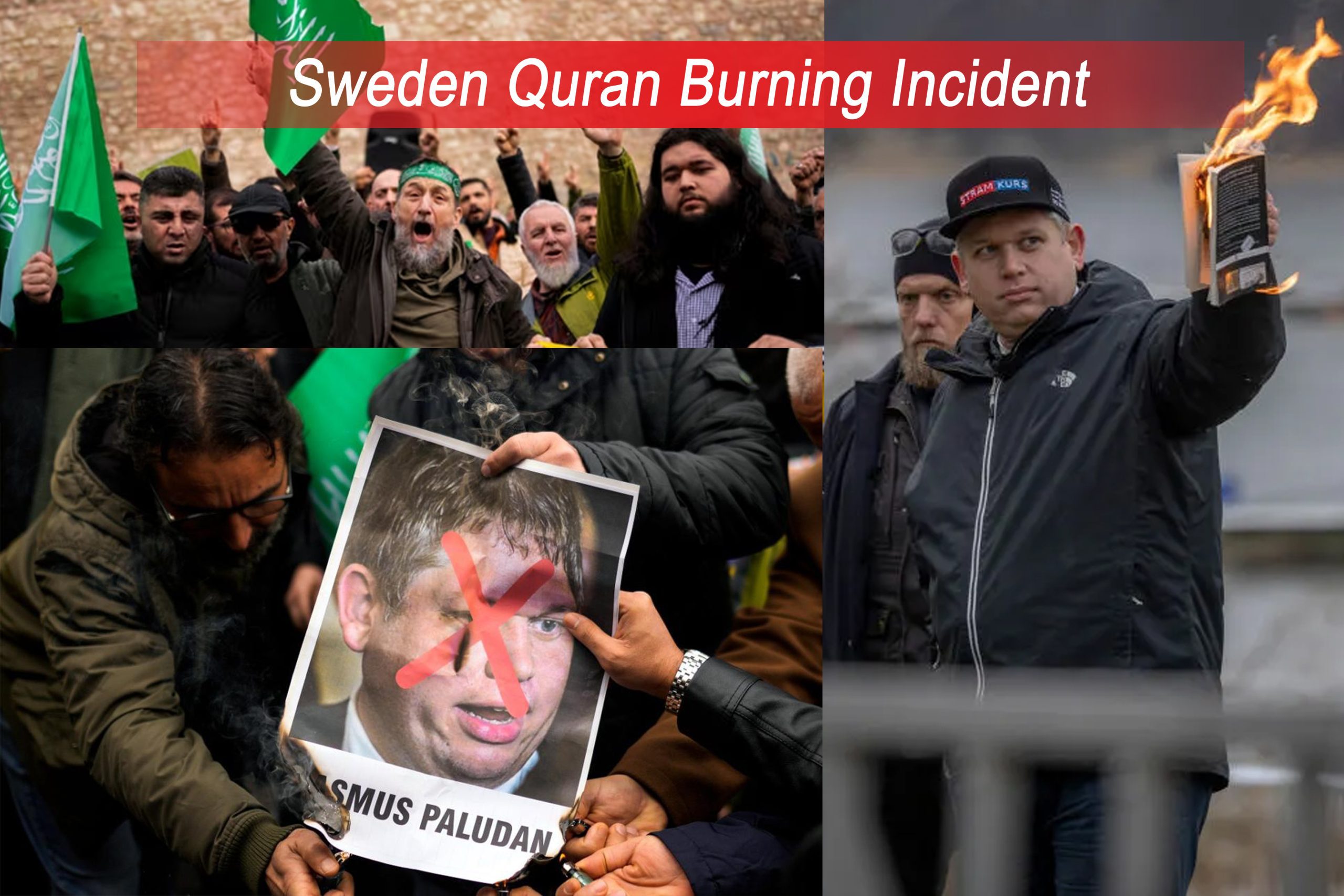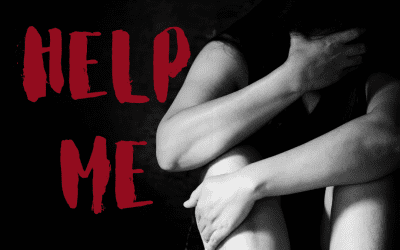In a shocking turn of events, the burning of a Quran outside a mosque in Stockholm has led to a diplomatic standoff between Sweden and Iran. The incident, carried out by an Iraqi-born refugee, has ignited anger and protests not only within Sweden but also in Muslim-majority countries worldwide. As the situation unfolds, Sweden finds itself at a crossroads, forced to reflect on its identity and balance freedom of expression with the need for religious tolerance.
The Quran Burning Incident
On the first day of Eid al-Adha, a sacred Muslim holiday, an individual of Iraqi origin burned a Quran outside a mosque in Stockholm. The act, deemed highly offensive and disrespectful by Muslims worldwide, has caused outrage and sparked widespread condemnation. Swedish police quickly intervened, accusing the perpetrator of campaigning against an ethnic or national group.
Government Responsibility
Iranian Foreign Minister Hossein Amirabdollahyan accused the Swedish government of authorizing the protest. He argued that the desecration of the Koran should never have been allowed. In response, Iran announced its refusal to send a new ambassador to Sweden, halting the diplomatic process. This decision represents a significant escalation of tensions between the two countries.
International Fallout
The incident caused a stir outside of Sweden. The Iraqi Foreign Ministry called for the extradition of the man responsible, saying that since he is an Iraqi citizen, he should be tried in Baghdad. This motion has further complicated the situation as Iraq seeks justice for an act committed by one of its citizens.
As a sign of solidarity, countries such as Morocco, Kuwait, Jordan and the United Arab Emirates recalled their ambassadors from Stockholm. These countries joined others in condemning the incident and calling on Sweden to take appropriate action.
Raid on the Swedish Embassy
In an alarming turn of events, thousands of Iraqi protesters, incited by populist Shia cleric Moqtaha al-Sadr, stormed the Swedish embassy in Iraq. The protesters, fueled by their anger over the Quran burning, breached the embassy premises before eventually dispersing when security forces intervened. The raid has raised concerns over the safety and security of foreign embassies, highlighting the gravity of the situation.
Sweden’s Response and Reflection
Swedish Prime Minister Ulf Kristersson has unequivocally denounced the embassy raid while emphasizing the need for introspection within Sweden. He acknowledges the gravity of the security situation and urges the nation to refrain from insulting others. This incident has forced Sweden to confront its own identity and grapple with the delicate balance between freedom of expression and the need for religious tolerance.
International Call for Action
In response to the growing number of Quran burnings, the Organisation of Islamic Cooperation held an emergency meeting in Jeddah. The Saudi-based organization urged member states to take unified and collective measures to prevent further incidents of this nature. The secretary general emphasized that these burnings were not merely Islamophobia incidents but constituted a violation of international law, which prohibits the advocacy of religious hatred.
Impact on Sweden’s Reputation
The Quran burning incident has dealt a significant blow to Sweden’s international reputation. The granting of the protest permit, despite previous rejections by the police, has been criticized as a failure to protect religious sensitivities and uphold the principles of respect and inclusivity. As countries recall their ambassadors and express their anger, Sweden faces the challenge of rebuilding its image and assuring the international community of its commitment to religious harmony.
Global Outcry and Support
The incident has sparked outrage and solidarity among Muslim-majority nations worldwide. Countries such as Morocco, Kuwait, Jordan, and the United Arab Emirates have recalled their ambassadors from Stockholm, showcasing their condemnation of the act and demanding appropriate action. Even countries like Turkey, a NATO member with influence over Sweden’s membership, have expressed their anger and called for a halt to anti-Islam protests in the name of freedom of expression. The global response highlights the universal importance placed on religious tolerance and the condemnation of actions that promote hatred and disrespect.
International Legal Obligations
The Organisation of Islamic Cooperation’s emergency meeting in Jeddah emphasized the need for member states to take collective measures to prevent further burnings of the Quran. The secretary general underscored that these incidents were not merely Islamophobia but a violation of international law that prohibits the advocacy of religious hatred. This call for action reiterates the responsibility of nations to protect religious symbols and foster an environment of respect and understanding.
Security Concerns
The raid on the Swedish embassy in Iraq by Iraqi protesters raises serious security concerns for diplomatic missions worldwide. The breach of an embassy’s premises threatens the safety of personnel and the diplomatic relationship between nations. The incident serves as a wake-up call for countries to strengthen security measures and ensure the protection of diplomatic enclaves, reinforcing the need for robust security protocols and collaboration between host countries and foreign missions.
The Path to Reconciliation
Sweden finds itself at a crossroads, grappling with the aftermath of the Quran burning incident. As tensions escalate and diplomatic ties strain, the nation must embark on a path of reconciliation. This involves not only addressing the immediate issues at hand but also engaging in constructive dialogue with affected nations to rebuild trust and foster mutual understanding. Sweden has an opportunity to reconsider its policies and balance freedom of expression with promoting religious harmony and respect for different beliefs.
Freedom of Speech and Religious Feelings
The Koran burning has reignited debate about the delicate balance between freedom of speech and the need to respect religious sentiments. While freedom of expression is a fundamental human right, it is important to recognize that it comes with responsibilities. Granting permission for such a provocative act raises questions about restrictions on free speech and the duty of governments to protect religious symbols from intentional desecration. This incident prompts a broader discussion on how societies can navigate the complexities of freedom of expression while ensuring the preservation of social harmony and respect for diverse religious beliefs.
Dialogue and Understanding
In the aftermath of the Quran burning incident, fostering dialogue and understanding becomes paramount. It is essential for Sweden to engage in meaningful conversations with affected nations, religious leaders, and communities to address the underlying issues and find avenues for reconciliation. Open and respectful dialogue can help bridge the gap, dispel misunderstandings, and foster a deeper appreciation for cultural and religious diversity. Through constructive engagement, Sweden can work towards healing the wounds caused by this incident and promote a more inclusive and tolerant society.
Role of Education and Awareness
The Quran burning incident underscores the importance of education and awareness in combating religious intolerance. It highlights the need for educational institutions and communities to promote interfaith dialogue, religious literacy, and understanding. By investing in educational programs that promote respect, empathy, and cultural exchange, Sweden can equip future generations with the tools to navigate diverse societies and foster mutual respect. Additionally, media outlets and social platforms play a crucial role in disseminating accurate information and countering harmful narratives that perpetuate hatred and misunderstanding.
International Cooperation
Addressing the challenges arising from the Quran burning incident requires international cooperation and collaboration. The incident serves as a reminder of the disconnectedness of nations and the shared responsibility to uphold religious freedom and combat religious hatred. By working closely with international organizations, such as the United Nations, the Organisation of Islamic Cooperation, and regional bodies, Sweden can join forces with other nations in implementing measures to prevent similar incidents and promote religious harmony globally.
Artistic and Peaceful Responses
In response to the Quran burning incident, individuals, artists, and communities worldwide have expressed their solidarity and support through artistic and peaceful means. These responses can serve as powerful tools for healing and fostering understanding. Art exhibitions, interfaith gatherings, and initiatives promoting cultural exchange can help bridge divides, promote tolerance, and showcase the universal values of peace and respect. Such initiatives can play a significant role in shifting the narrative away from division and towards unity and shared humanity.
Overall Conclusion
The Quran burning incident in Sweden and its subsequent fallout have highlighted the complex and sensitive nature of freedom of expression, religious sensitivities, and international relations. The refusal of Iran to send an ambassador to Sweden, the recall of ambassadors by several Muslim-majority countries, and the raid on the Swedish embassy in Iraq underscore the magnitude of the incident and its far-reaching implications.
Sweden finds itself at a crucial juncture, necessitating deep reflection on its identity and values. The incident has prompted a re-evaluation of the limits of freedom of expression and the need to balance it with respect for religious beliefs. It calls for introspection on how Sweden can foster a society that embraces diversity, religious harmony, and mutual understanding.
International cooperation and dialogue are essential in addressing the fallout from the incident and preventing future occurrences. By engaging in constructive conversations, Sweden can rebuild relationships with affected nations and work towards common goals of religious tolerance and respect. Educational initiatives, media literacy, and interfaith dialogues can contribute to long-term solutions and promote cultural exchange.
The incident also serves as a reminder of the shared responsibility to protect religious symbols and foster an environment free from religious hatred. International organizations and regional bodies play a crucial role in advocating collective action and upholding international law, which prohibits advocating religious hatred.
Artistic and peaceful responses can heal and bridge differences. They offer opportunities to develop dialogue, understanding and unity in the face of adversity. By supporting and expanding these efforts, Sweden can contribute to a global movement that promotes respect, empathy and peace.
The Koran burning incident sparked a wider discussion about the values underlying society and the importance of balancing individual rights with public respect. This gives Sweden an opportunity to reaffirm its commitment to inclusion, diversity and religious harmony, learn from the incident and take action to prevent similar events in the future.
Ultimately, Sweden’s response to the Koran burning will shape its position in the international community and its ability to shape a society that adheres to the principles of freedom, respect and understanding. Through thoughtful reflection, dialogue and meaningful action, Sweden can navigate this difficult moment and become a symbol of unity and tolerance in an interconnected world.








0 Comments